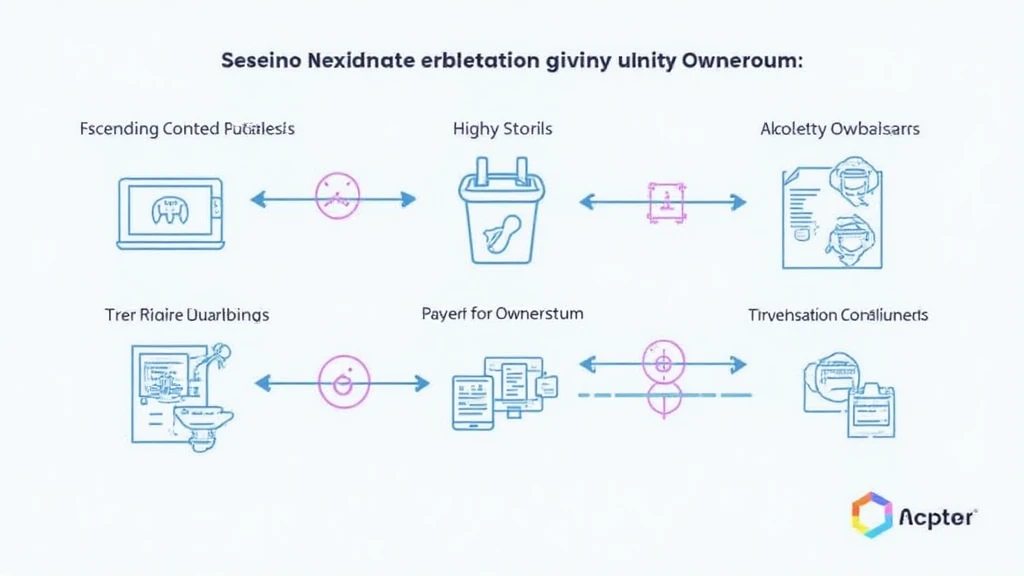Introduction
In a world where digital assets are becoming increasingly prominent, understanding how to verify blockchain property ownership has never been more critical. With an estimated $4.1 billion lost to DeFi hacks in 2024, ensuring the integrity and verification of property ownership on the blockchain is essential for both individuals and businesses.
The rise of blockchain technologies has fundamentally transformed the way property ownership is recorded and verified. The innovation provides not only a solution to common ownership disputes but also enhances transparency. This article will guide you through various methods to verify blockchain property ownership effectively.
Understanding Blockchain and Property Ownership
Before diving into the verification methods, it’s essential first to grasp the concept of blockchain in relation to property ownership. Traditionally, physical properties are registered through governmental institutions, which can be tedious and prone to errors. By utilizing blockchain technology, property titles can be represented as digital assets that are secure, immutable, and easily verifiable.

1. The Basics of Blockchain Technology
- Decentralized nature ensures no single point of failure.
- Immutable records help to prevent fraud and errors.
- Smart contracts automate the execution of agreements, reducing the need for intermediaries.
In the context of real estate, each property can have a unique blockchain ID, which can be tracked and verified without needing centralized authorities.
2. Importance of Verification
Verifying property ownership on the blockchain holds several advantages:
- Prevention of fraudulent ownership claims.
- Streamlined process during property transactions.
- Increased buyer confidence in property purchases.
3. Methods to Verify Blockchain Property Ownership
Here are effective strategies to verify ownership in a blockchain environment:
a. Public Ledger Exploration
Every transaction on the blockchain is recorded on a public ledger. Individuals can explore public ledger options such as:
- Blockchain Explorers (e.g., Etherscan, Blockchair)
- Property-specific platforms (e.g., Propy, Ubitquity)
For example, to verify a property’s ownership, one would search the blockchain explorer by inputting the property’s unique blockchain ID. The explorer will reveal transaction history and the current owner’s wallet address.
b. Consulting Smart Contracts
Many blockchain property platforms utilize smart contracts to automate ownership verification. A smart contract can stipulate ownership criteria and automatically update when transactions occur.
Here’s the catch: You must ensure the smart contract is audited and verified to avoid vulnerabilities. For instance, consult auditing platforms like Hibt.com for reliable contract assessment.
c. Utilizing Third-Party Services
Third-party verification services can also solidify ownership claims:
- Decentralized autonomous organizations (DAOs) that govern the property registry.
- Legal firms specializing in blockchain technology.
4. The Role of Numbers in Verification
When verifying ownership, understanding the metrics is vital.
According to recent studies, over 60% of Vietnamese property owners are unaware of their rights related to blockchain ownership verification. This highlights the need for education and awareness in markets with emerging blockchain technologies.
5. Future of Blockchain Ownership Verification
As the technology matures, we can expect further innovations:
- Enhanced interoperability across different blockchain platforms.
- Augmented reality tools for viewing properties linked to blockchain data.
With more robust systems in place, the verification of property ownership is expected to become quicker and more secure.
Conclusion
As blockchain technology continues to evolve, so too will the methods for verifying property ownership. In an era where fraud is on the rise, leveraging blockchain’s potential for accurate and transparent ownership verification is crucial.
Staying informed about verification processes and utilizing available tools can lead to better security in managing digital property assets. Keep an eye on future developments and be proactive about your blockchain property ownership verification needs.
Explore more insights at officialcryptonews. Your journey to secure and transparent blockchain ownership starts here.
Author’s Note: This article was contributed by Dr. Alex Tran, a blockchain security expert with over 15 published papers in blockchain technology and smart contract auditing geared towards enhancing digital asset safety.




